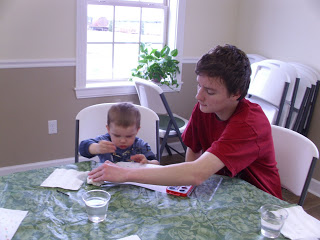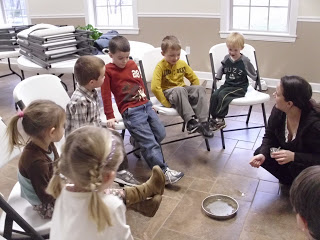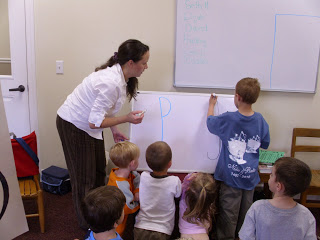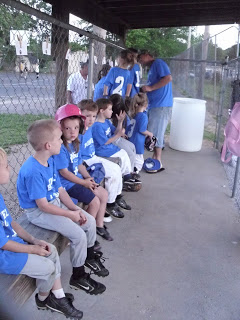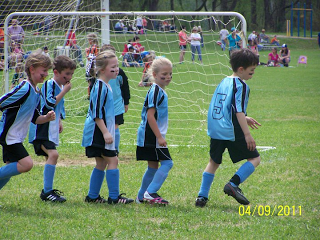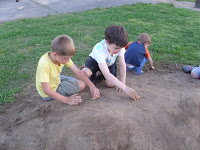It was a question that I hadn’t really thought about before we made the decision to homeschool. I’m not sure why it never dawned on us that it would be an issue. Maybe because, when we’d been around some homeschooling families in the past, I had never really noticed a problem with their ability to associate with others. But then we made our decision back in 2009, and it seemed that this question was asked of us wherever we went. And for good reason.
My kids are quirky.
Not only that, but, I’m quirky, too. Matter of fact, everyone is quirky if you think about it. It’s part of God’s design for all of us to be different. I have worked as a teacher for classes in the public school system ranging from Kindergarten to 12th grade and in private schools from grades K-8. Not many people have had that opportunity. One thing I’ve noticed is that kids are unpredictable and different, no matter what type of setting you put them in. And so, I’ve determined that it’s okay to be different. And God can use my quirkiness and the quirkiness of my kids to bless other people.
While we were still living in Houston, it was very simple to find activities to do with other homeschooling families. We had park days, and gym days, and art days, and co-op days. Matter of fact, we were able to socialize more once we embarked on the homeschooling journey. But then we moved to rural Tennessee where the county’s entire population was about 20,000 people. Now, it would take more effort on my part to see that we connect with others.
Shortly after we arrived, we found another homeschooling family that happened to be at the park when we were there (the odds of this happening here are pretty slim, by the way). She connected me with the two homeschooling groups for this area so that I could be better informed. (Thank you Georgianna!) To be honest, I was in a period of serious doubt regarding this calling at that time. I just wanted to give up because it was so difficult to get connected at first. After hearing it so much the previous year, I started asking myself, “What about socialization?” And I had to deal with failures and struggles as I tried to figure out how to adjust to the move, homeschool my children, and have my husband gone half the time.
Then we found a church, which was a little more difficult than we’d anticipated. But now we were plugged in where we could worship together as a family, a place where people encouraged us as we adjusted to the move AND to Gary’s changing work schedule.
While we were in search of a co-op, we heard about Classical Conversations. I had no idea what Classical Conversations was, but we would be around other families at least one day per week, and it seemed to fill in all the stuff I did not naturally get around to doing as far as curriculum was concerned. (Update: After several years, we are no longer in Classical Conversations. You can read more about that here.)
Soccer started, and then T-ball. These were all normal things for us back in Houston, with teams sorted by age or grade level. With this definition of socialization in mind, the short answer to the socialization questions was, yes, our children can handle being around kids the same age. (They can even sit in a classroom environment and raise their hands when they have a question.)
Over time, I’ve also noticed that most homeschooling families go out of their way to visit each other, to plan playdates, and to go on field trips together. (I’m thankful that it’s the norm for home educators around here to do this!) And… I’ve found that most children naturally know how to play with others.
We’ve had several other to participate in fun events like Macon County’s Art in the Park
and our local library programs (where I didn’t think Stephen would ever stop asking questions).
But the thing that finally helped me to understand the importance of socialization was not one in which our children were grouped with their own peers. It occurred at our Field Day, where 16-year-olds were teamed up with 5-year-olds, encouraging and cheering and helping their teammates through all of the activities. It was one of the most incredible events I’ve ever seen. It was just beautiful to see what can happen when you break the you-must-be-with-your-own-age-group barrier.
| Stephen’s Field Day Team |
| A teen who helped Stephen (then age 7) with the hoop races. |
Since then, Stephen has spent a week in camp, where the teenagers seemed almost unreal with wonderful manners and incredible joy. They came up to me to tell me what a blessing my child had been to them, and then insisted on taking his belongings to the car for us while they chatted about the fun things they’d done with my 8-year-old son. These teens were so well-mannered, unlike my experiences back in the public school system (not across the board – some of my students were polite, but that was not the norm). That these teenagers valued an 8-year-old as much as their peers spoke volumes to me. And it gave me a glimpse into the future for what my children can become as we break the “norms” of socialization.
At one time, the socialization question bothered me. I used to think that anything my children did when they didn’t act right reflected on the fact that we homeschooled. Now I know it’s simply because no one is perfect. All kids have their moments. (I have seen them firsthand across many different types of families and social situations!) The socialization question doesn’t bother me anymore, and my hope is that others can see the wonderful opportunities children can have regardless of their situation, whether they are taught in public school, private school, or at home.
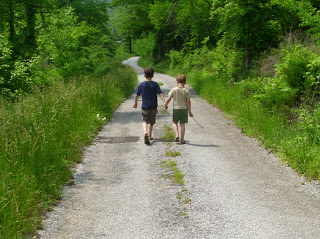 |
||
| In the midst of it all, the precious fact remains that our children have the time to develop their relationship with each other and with us. |
One last thought: We are very quirky and imperfect, but it is through God’s grace that our family experiences a fulfilling life. I am so very thankful for the time I get to spend with my children and the time that the boys get to spend with their daddy despite his work schedule. I don’t know how my children will turn out as adults, but that is not for me to decide. My job is to trust in God’s promises (and His call for our lives) as I do my part in aiming the best that we can before letting go of the arrow.

